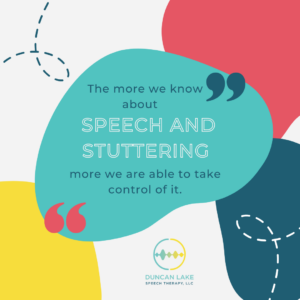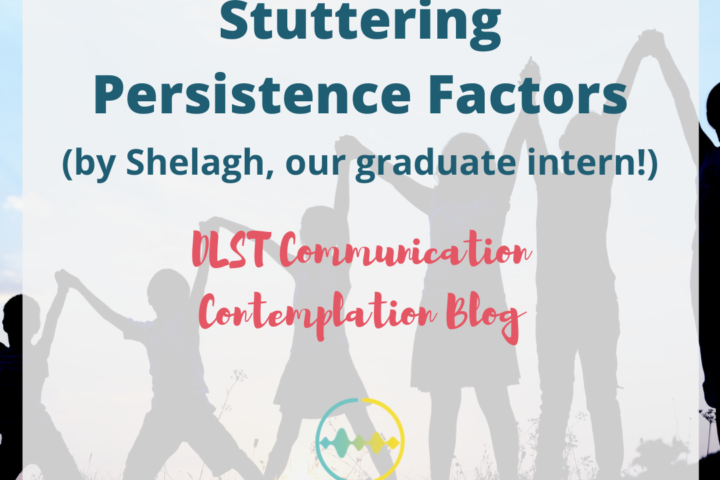by Anna Dubiak, M.S, CCC-SLP
Duncan Lake Speech Therapy, LLC
Stuttering can cause a lot of big feelings in individuals who stutter as well as the parents of a stuttering child. One crucial part of stuttering therapy for these cases can be adding in desensitization.
Often we are afraid to name problems we or our children are having and stuttering is no exception. Stuttering can often be seen as the elephant in the room which may leave caregivers to sidestep discussing it. However just because it is not discussed does not mean it is not leaving a lasting impression. The key to desensitization is knowledge. The more we know about speech and stuttering the more we are able to take control of it.

Stuttering can often feel scary and unpredictable to stutterers but when we discuss it and become familiar with it that fear lessens. What was unknown and alarming becomes predictable and familiar. The more we know about stuttering and the impact it has on the individual the more we command it.
Often stutterers become stuck in a loop of negative feedback. “I stutter, I feel judged, because I feel judged I stutter more”. The negative feelings that are built up about stuttering become more ingrained and tend to contribute to more stuttering behaviors. When we break that chain of negativity, name stuttering, make it boring and unsurprising we are not so caught up in what others are thinking therefore feeling less damaging thoughts and stuttering less.
Avoiding talking about stuttering and surrounding the idea of stuttering with negative words and thoughts will not help get to the root of the problem. Avoidance will only lead to more negativity which is not the answer! In addition to fluency enhancing strategies make sure desensitization is in your speech therapy plan!




